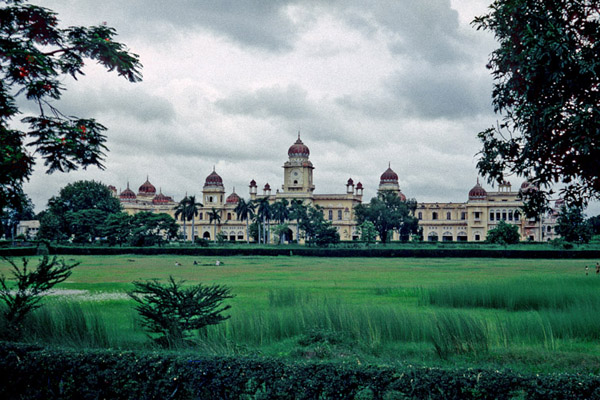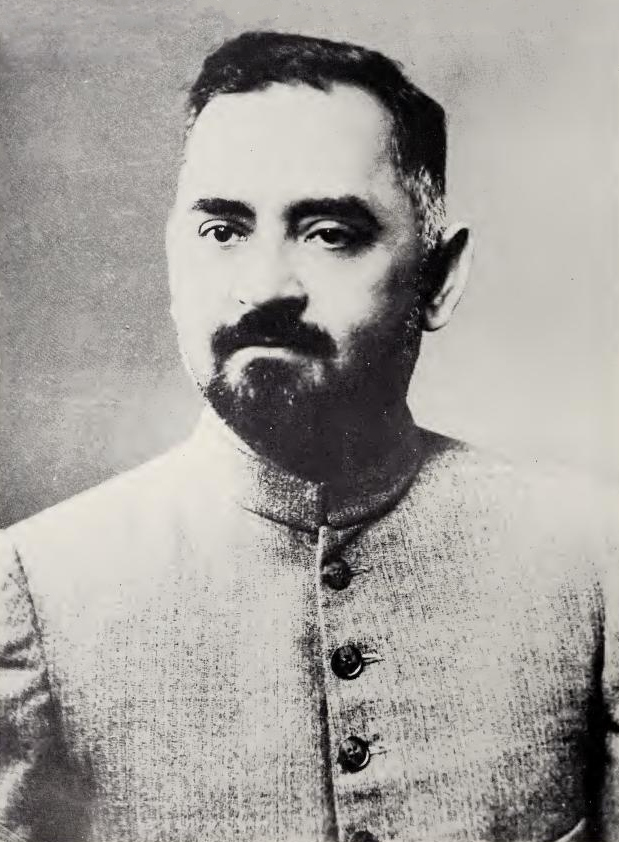|
Abdul Aleem (professor)
Abdul Aleem was a scholar, educationist, journalist and writer in Urdu. He was the professor of Arabic at Aligarh Muslim University, and also served as its vice-chancellor from 1968 to 1974. Early life and education He belonged to a zamindar family. His father was a practicing lawyer in Lucknow. He excelled at studies from the very beginning, and it was only natural that he should have been drawn into the field of academics. After his studies he initially joined Jamia University and during his association with Jamia university, he wrote profusely for its organ “Jamia”. His escalation as an academic was phenomenal, but hardly surprising in view of his abilities. In the early 1930s he had been to Germany and had there come into contact with Marxian thought. After his stint at Jamia, Abdul Aleem joined the Lucknow University as head of Department of Arabic. He was soon to come under the influence of the progressives. The progressives were extremely active at lucknow, during this ... [...More Info...] [...Related Items...] OR: [Wikipedia] [Google] [Baidu] |
Aligarh Muslim University
Aligarh Muslim University (abbreviated as AMU) is a Public University, public Central University (India), central university in Aligarh, Uttar Pradesh, India, which was originally established by Sir Syed Ahmad Khan as the Muhammadan Anglo-Oriental College in 1875. Muhammadan Anglo-Oriental College became Aligarh Muslim University in 1920, following the Aligarh Muslim University Act. It has three off-campus centres in AMU Malappuram Campus (Kerala), AMU Murshidabad centre (West Bengal), and Kishanganj Centre (Bihar). The university offers more than 300 courses in traditional and modern branches of education, and is an institute of national importance as declared under seventh schedule of the Constitution of India at its commencement. The university has been ranked 801–1000 in the ''QS World University Rankings'' of 2021, and 10 among universities in India by the ''National Institutional Ranking Framework'' in 2021. Various clubs and societies function under the aegis of the un ... [...More Info...] [...Related Items...] OR: [Wikipedia] [Google] [Baidu] |
University Of Lucknow
The University of Lucknow (informally known as Lucknow University, and LU) is a public state university based in Lucknow, Uttar Pradesh. Founded in 1920, the University of Lucknow is one of the oldest government owned institutions of higher education in India. LU's main campus is located at Badshah Bagh, University Road area of the city with a second campus at Jankipuram. LU is a teaching, residential and affiliating university, organized into more than 500 colleges and 17 institutes, located throughout the city and other surrounding areas. The University has jurisdiction over colleges of 4 districts: Raebareli, Hardoi, Sitapur and Lakhimpur Kheri. The university is opening a third campus in Sitapur district where vocational and skill development courses will be offered. The University of Lucknow is the only Public University in the State of Uttar Pradesh to be accredited with A++ status by the National Assessment and Accreditation Council. History The idea of establishing a u ... [...More Info...] [...Related Items...] OR: [Wikipedia] [Google] [Baidu] |
Congress Socialist Party
The Congress Socialist Party (CSP) was a socialist caucus within the Indian National Congress. It was founded in 1934 by Congress members who rejected what they saw as the anti-rational mysticism of Gandhi as well as the sectarian attitude of the Communist Party of India towards the Congress. Influenced by Fabianism as well as Marxism-Leninism, the CSP included advocates of armed struggle or sabotage (such as Yusuf Meherally, Jai Prakash Narayan, and Basawon Singh (Sinha) as well as those who insisted upon ''Ahimsa'' or ''Nonviolent resistance'' (such as Acharya Narendra Deva). The CSP advocated decentralized socialism in which co-operatives, trade unions, independent farmers, and local authorities would hold a substantial share of the economic power. As secularists, they hoped to transcend communal divisions through class solidarity. Some, such as Narendra Deva or Basawon Singh (Sinha), advocated a democratic socialism distinct from both Marxism and reformist social democracy. ... [...More Info...] [...Related Items...] OR: [Wikipedia] [Google] [Baidu] |
Zakir Husain (politician)
(8 February 1897 – 3 May 1969) known as Dr. Zakir Husain, was an Indian educationist and politician who served as President of India from 13 May 1967 until his death on 3 May 1969. Born into an Afridi Pashtun family in Hyderabad, Husain studied in Etawah, the Muhammadan Anglo-Oriental College, Aligarh and the University of Berlin from where he obtained a doctoral degree in economics. He was a founding member of the Jamia Milia Islamia of which he served as Vice-chancellor during 1926 to 1948. He was closely associated with Mahatma Gandhi and was chairman of the Basic National Education Committee which framed a new educational policy known as Nai Talim with its emphasis on free and compulsory education in the first language. Appointed Vice Chancellor of the Aligarh Muslim University in 1948, he helped retain it as a national institution of higher learning. For his services to education, he was awarded the Padma Vibhushan in 1954 and was a nominated member of the Indian ... [...More Info...] [...Related Items...] OR: [Wikipedia] [Google] [Baidu] |
Indian School Of International Studies
The School of International Studies ( hi, स्कूल ऑफ इंटरनेशनल स्टडीज) (formerly Indian School of International Studies) is an academic institution created in 1955 which merged with the Jawaharlal Nehru University in 1970. It was founded by Pandit Hriday Nath Kunzru, Prof. A.Appadorai and Professor M.S. Rajan, under the auspices of the Indian Council of World Affairs. In the 15 years of its existence, it came to be noted as the leading institute of research in the area of International Relations and Area Studies in India. Many of its former faculty and students went on to occupy academic positions in other universities and research institutes across the country. History and Structure The School was created on the suggestion of the then Prime Minister and Foreign Minister, Jawaharlal Nehru, that there was the need for an institution to help build a pool of academic experts on international affairs and area studies who could give an info ... [...More Info...] [...Related Items...] OR: [Wikipedia] [Google] [Baidu] |



